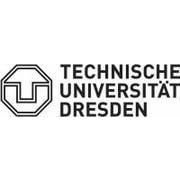Doctoral Scholarship - Dresden, Deutschland - Technische Universität Dresden
Beschreibung
Technische Universität Dresden (TUD), as a University of Excellence, is one of the leading and mostdynamic research institutions in the country. Founded in 1828, today it is a globally oriented,
regionally anchored top university as it focuses on the grand challenges of the 21st century. lt
develops innovative solutions for the world's most pressing issues. In research and academic
programs, the university unites the natural and engineering sciences with the humanities, social
sciences, and medicine. This wide range of disciplines is a special feature, facilitating interdisciplinarity
and transfer of science to society. As a modern employer, it offers attractive working conditions to all
employees in teaching, research, technology, and administration. The goal is to promote and develop
their individual abilities while empowering everyone to reach their full potential. TUD embodies a
university culture that is characterized by cosmopolitanism, mutual appreciation, thriving innovation
and active participation. For TUD, diversity is an essential feature and a quality criterion of an excellent
university. Accordingly, we welcome all applicants who would like to commit themselves, their
achievements, and productivity to the success of the whole institution.
The Boysen-TU Dresden Research Training Group for young researchers from Engineering, Social
Sciences, Arts, and Humanities, co-financed by the Friedrich and Elisabeth Boysen Foundation and the
Technische Universität Dresden, is offering a doctoral scholarship1 as soon as possible, for a
what is its fourth generation, is conducting research on the overarching topic
Hydrogen Economy -
Strategic element of a future GreenGas deal. It consists of four clusters.
Cluster H:
Techno-
economic modeling of hydrogen value-added networks combines four sub-projects (SP).
A suitable person is being sought to work on the topic
SP H3:_Optimization of hydrogen value-added _**
_networks: A systems process engineering analysis.
Institute of Process Engineering and Environmental Technology of the Faculty of Mechanical Science
and Engineering at TU Dresden (within the framework of its Process-to-Order Lab, led by Prof. Urbas,
Chair of Process Control Systems) is responsible for the supervision. The interdisciplinary supervision
takes place in the common rooms of the Research Training Group.
Abstract:
The subproject models the industrial material use of green hydrogen as a raw material in
the value creation networks of the European process industry. The modelling is based on process
engineering relationships such as steady-state material, component, and energy balances with
operating point-dependent efficiencies and technological boundary conditions. Statistical approaches
are used to map the resilience of the chemical processes to the volatility of the green hydrogen and
energy supply. For the aforementioned value creation networks, plants for the provision of renewable
energy, electrolysis plants, water treatment plants, hydrogen storage facilities, hydrogen transport
means, and plants for the material utilization of hydrogen are taken into account. In addition, water
cycle aspects are considered. In the mathematical optimization problem, utilization pathways and
technology variants are mapped as integer variables, while constraints capture the capability limits of
the technologies. Continuous characteristics such as CO2 reduction potential, resource consumption,
and resilience to hydrogen supply fluctuations are included in the objective function. Integer
optimization problems arise, allowing the search for optimal distribution and technology mix. The aim
of the investigations is to clarify the effects of the distribution of (limited) green hydrogen on different
process chains and to derive best practices for the technology mix by means of optimization. In
addition, findings regarding production-relevant sustainability development goals are to be derived.
Applicants are expected to have an above-average academic degree in systems process engineering,
renewable energy systems, or information systems engineering, especially modelling or model-based
optimization, and a high degree of willingness to engage in interdisciplinary work and research.
Accepting the scholarship obliges your presence in the research group's offices in Dresden on three
fixed core days per week. Participation in the college's teaching program is compulsory (24 ETCS in 3
years).
TUD strives to employ more women in academia and research. We therefore expressly encourage
women to apply. The University is a certified family-friendly university and offers a Dual Career
equally qualified, those with disabilities or with equivalent status pursuant to the German Social
Code IX (SGB IX) will receive priority for employment.
academic certificates or other relevant
Mehr Jobs von Technische Universität Dresden
-

Wiss. Mitarbeiter:in
Dresden, Deutschland - vor 3 Wochen
-

Wiss. Mitarbeiter:in/doktorand:in
Dresden, Deutschland - vor 3 Tagen
-

wiss. Mitarbeiter:in
Dresden, Deutschland - vor 1 Woche
-

Wiss. Mitarbeiter:in Digitales Lehren Und Lernen
Dresden, Deutschland - vor 2 Wochen
-

Wissenschaftliche:r Mitarbeiter:in
Dresden, Deutschland - vor 1 Woche
-

Stud. Oder Wiss. Hilfskraft
Dresden, Deutschland - vor 3 Wochen
